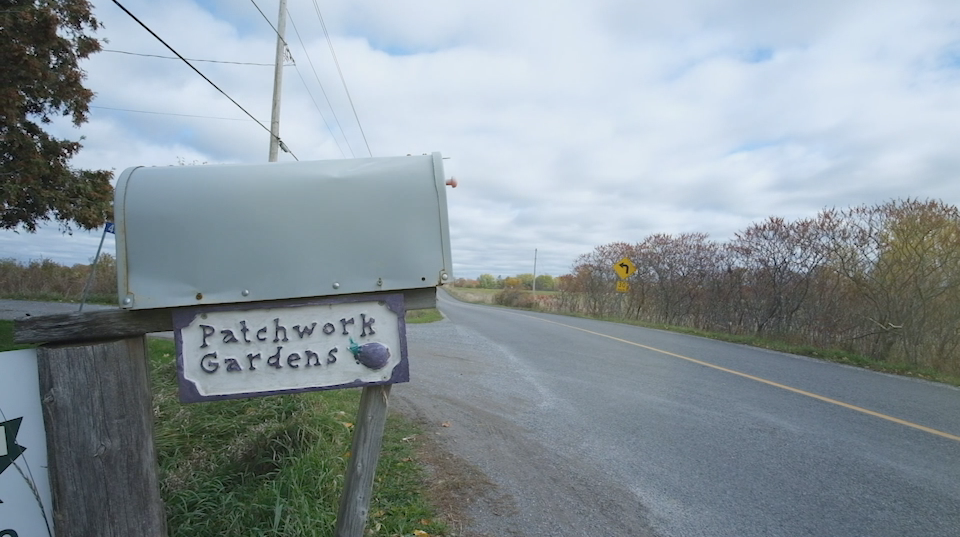
Food can be revolutionary. That’s what the owners of Patchwork Gardens believe.
In 2004, three friends, Eric, Meg and Ian, fresh out of university, wanted to do more than their bachelor degrees could offer. Together they started a small vegetable garden in Battersea, just 20 minutes north of downtown Kingston, and gradually learned the tricks of the trade. What began as a small-scale project (run part-time nearly two decades ago) has literally grown into a large farm operation.
“In the beginning, I think [starting the farm] was mostly a reaction against industrial agricultural and giant corporations,” says co-owner Eric Williams. “To do something meaningful in the world and apply myself in a real way for positive change.”
“We all went to university. We all have arts degrees that didn’t get us anywhere,” says Meg Joslin, another of the farm’s co-owners. “I did cultural studies in English, but it led me to the activism side of things where I knew I wanted to work for myself. I wanted to feel good about what I did.”
“In the beginning, I think [starting the farm] was mostly a reaction against industrial agricultural and giant corporations.”
Eric Williams, co-founder, Patchwork Gardens
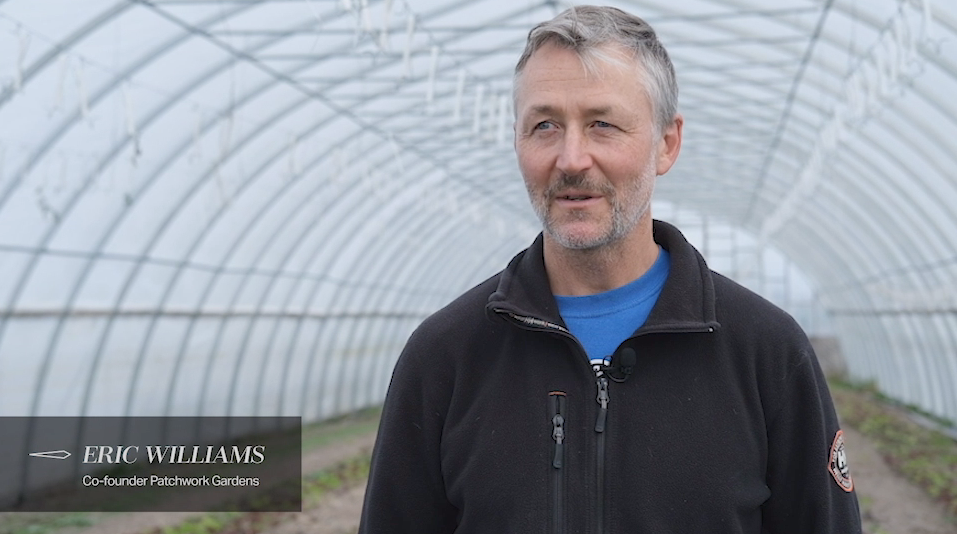
Patchwork was born from the idea of being politically engaged in and connected to food and the environment.
“What I particularly like is working on the farm, the camaraderie that is built with other people that are like-minded here, pursuing goals that are meaningful and rewarding in the context of the environmental climate change crisis,” says Eric. “I feel like it’s really meaningful work.”
The team all completed farm internships for a full growing season to establish previously non-existent agricultural backgrounds. They grew produce as they learned and eventually had a crop big enough to set up a stand at the Kingston Public Market in downtown Springer Market Square.
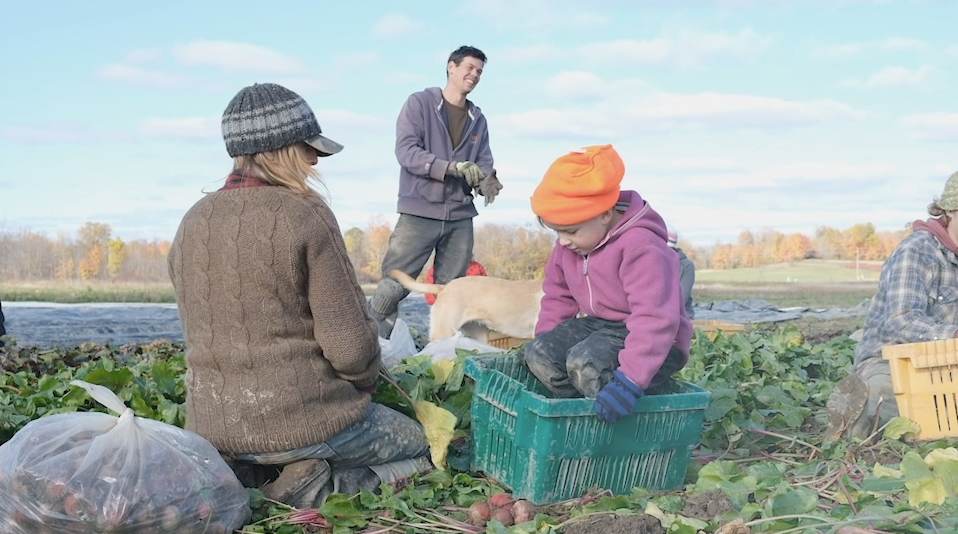
Their produce was a hit with the market crowd and for this Patchwork credits their secret weapon: Battersea Silt Loam soil.
The soil is exclusive to the Battersea area and has a high concentration of organic matter — over five percent compared to most conventional farms which are lucky to have one to two percent. Soil with high organic matter translates into more organisms in the soil which can be nurtured into a natural cycle of growth and decay as crops are planted and harvested. Plus, when you let nature take its course, there’s no need for chemical fertilizers.
“We’ve grown to love our soil,” says Ian. “Clay silt loam can help with nutrient and water retention and that gives us a big advantage as far as flavours and the nutritional profiles of our crops and people often remark about the flavour and the sweetness in things like our carrots.”
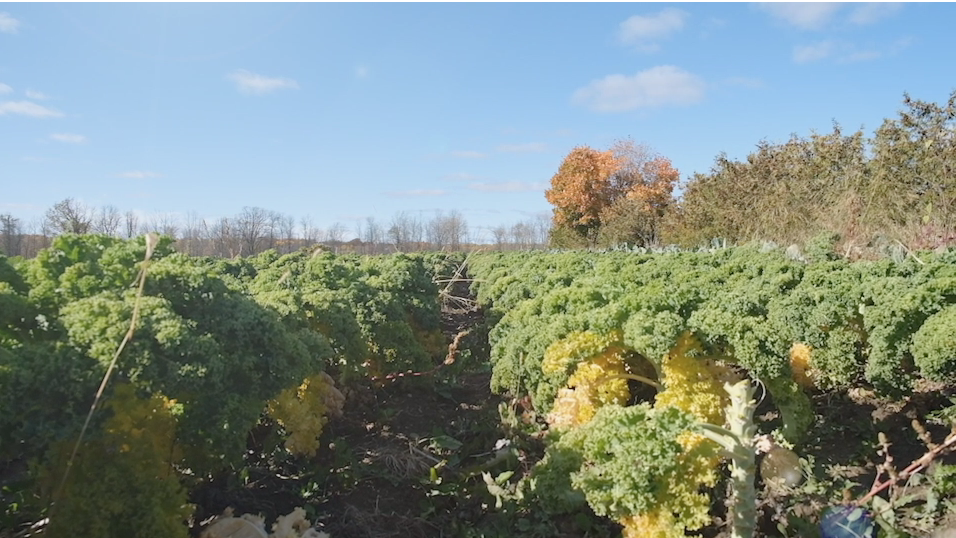
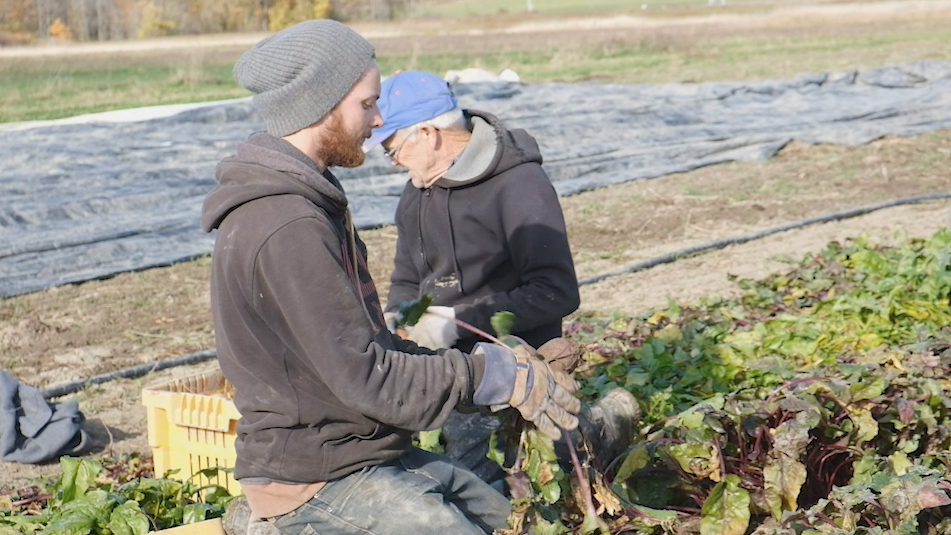
Patchwork operates on a quick turn-around delivery schedule to ensure optimal freshness. They harvest and pack everything to order so restaurants like AquaTerra and stores like The Grocery Basket can receive products that are ready to be used or sold right away.
If you’ve experienced a meal or two in Kingston before, you’ve probably noticed Patchwork Gardens’ name pop up on the menu. They’re on the supplier list of many of Kingston’s restaurants that have embraced the locavore movement. It doesn’t go unnoticed by the team at Patchwork, either.
“One of the things we’ve seen in the last 10, 12, maybe 15 years is real growth in the enthusiasm and excitement for local food,” says co-owner Ian Stutt. “From our neighbours, from our customers in town, and from the Kingston area and Frontenac county altogether. It’s been really exciting for us to know that there’s an excited, welcoming market for us to keep selling our vegetables that is hugely supportive of what we’re doing.”
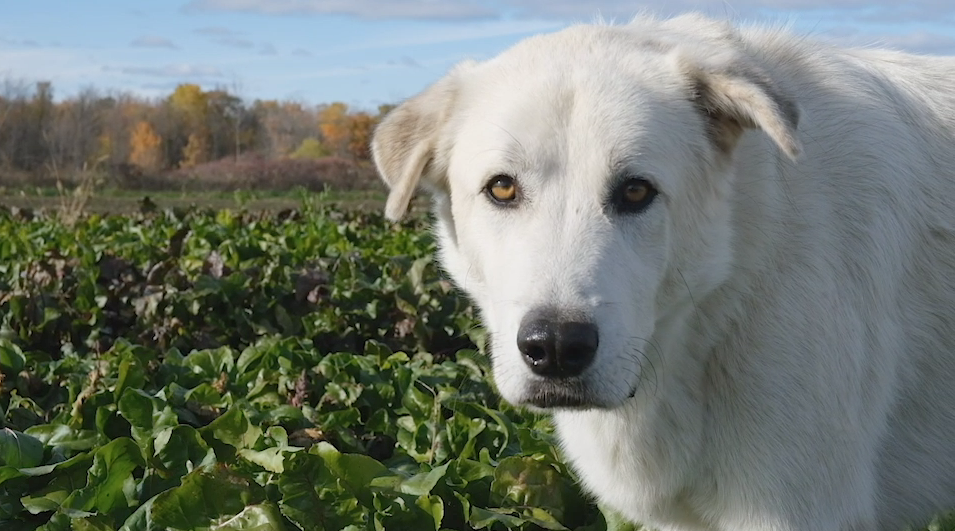
When food is supported at the local level, that money stays in the community and those dollars go a long way to support the economy, the farms, and the city’s prosperity. It all helps to grow and nurture a food system and the farm community, says Ian. Sounds pretty radical.






















